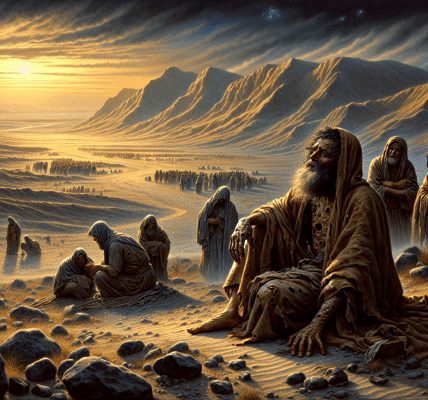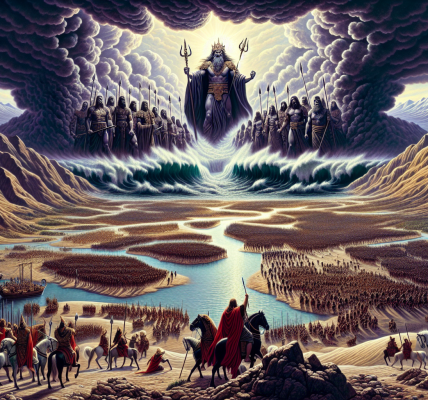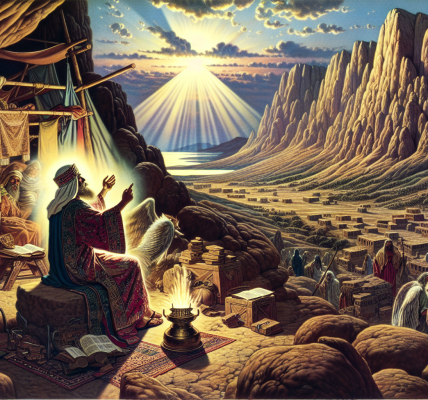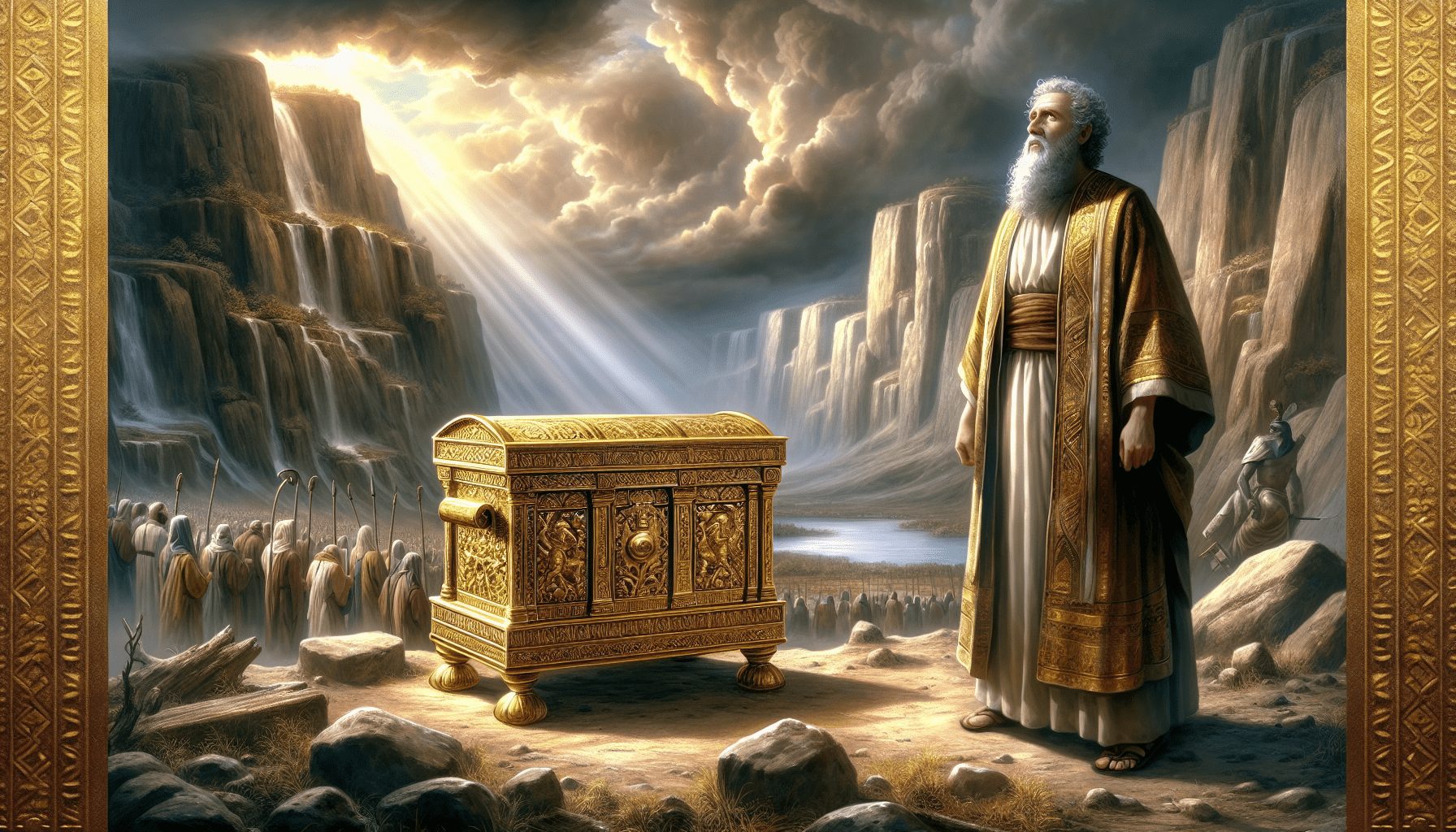**The Tower of Babel: A Story of Pride and Providence**
In the days when the earth was still young, when the great flood had receded and Noah’s descendants had multiplied, the people of the earth spoke one language. They journeyed from the east and settled in the land of Shinar, a vast plain where the soil was rich and the rivers flowed gently. There, they built homes, tilled the land, and grew in number, their hearts united by a common tongue.
But as their strength increased, so did their pride.
One day, the leaders of the people gathered and said to one another, *”Come, let us make bricks and bake them thoroughly.”* They took clay from the earth, molded it into bricks, and hardened them in fire until they were strong as stone. Then they said, *”Come, let us build for ourselves a city, and a tower whose top will reach into the heavens. Let us make a name for ourselves, lest we be scattered over the face of the whole earth.”*
Their ambition burned within them like the fires that baked their bricks. They desired greatness—not for the glory of God, but for their own renown. They feared being scattered, yet they did not seek the Lord’s guidance. Instead, they sought to ascend to the heavens by their own might, to rival even the throne of the Almighty.
Day after day, the tower rose higher. The people labored tirelessly, their hands calloused, their brows slick with sweat. The structure stretched upward, its shadow lengthening across the land. The builders marveled at their work, their hearts swelling with pride. *”Surely,”* they thought, *”nothing we imagine will be impossible for us.”*
But the Lord looked down upon the city and the tower, and His heart was grieved.
He saw the unity of the people—not in righteousness, but in rebellion. He saw their hearts, bent on exalting themselves rather than honoring their Creator. And so, the Lord spoke to the heavenly host, saying, *”Behold, they are one people, and they all have one language. This is only the beginning of what they will do, and nothing they propose to do will now be impossible for them. Come, let Us go down and confuse their language, so that they may not understand one another’s speech.”*
And so it was.
As the builders climbed the scaffolds, shouting commands to one another, their words suddenly became strange and distorted. A mason called for mortar, but his companion heard only nonsense. A laborer asked for bricks, but his neighbor stared in confusion. The once-unified voices now clashed in a cacophony of unfamiliar sounds. Frustration spread like wildfire. Arguments erupted. Work ground to a halt.
Without understanding, cooperation was impossible. The grand tower stood unfinished, a monument to human arrogance. The people, now divided by language, could no longer dwell together in harmony. They scattered across the earth, forming tribes and nations, each speaking a tongue unknown to the others.
The city was abandoned, left to crumble under the weight of its own ambition. The place was called *Babel*, for there the Lord confused the language of all the earth.
Yet even in judgment, there was mercy. The scattering prevented a greater evil—a humanity united in defiance of God. And in time, from these dispersed nations, the Lord would call a people to Himself, a people through whom He would reveal His redemptive plan.
For though men sought to build a tower to heaven, God would one day descend to dwell among them. And in the fullness of time, at Pentecost, He would reverse Babel’s curse, not by restoring one language, but by uniting many tongues in praise of His Son.
Thus, the story of Babel stands as a warning—a reminder that no tower of human pride can reach the heavens, but the humble heart that seeks God will find Him near.




